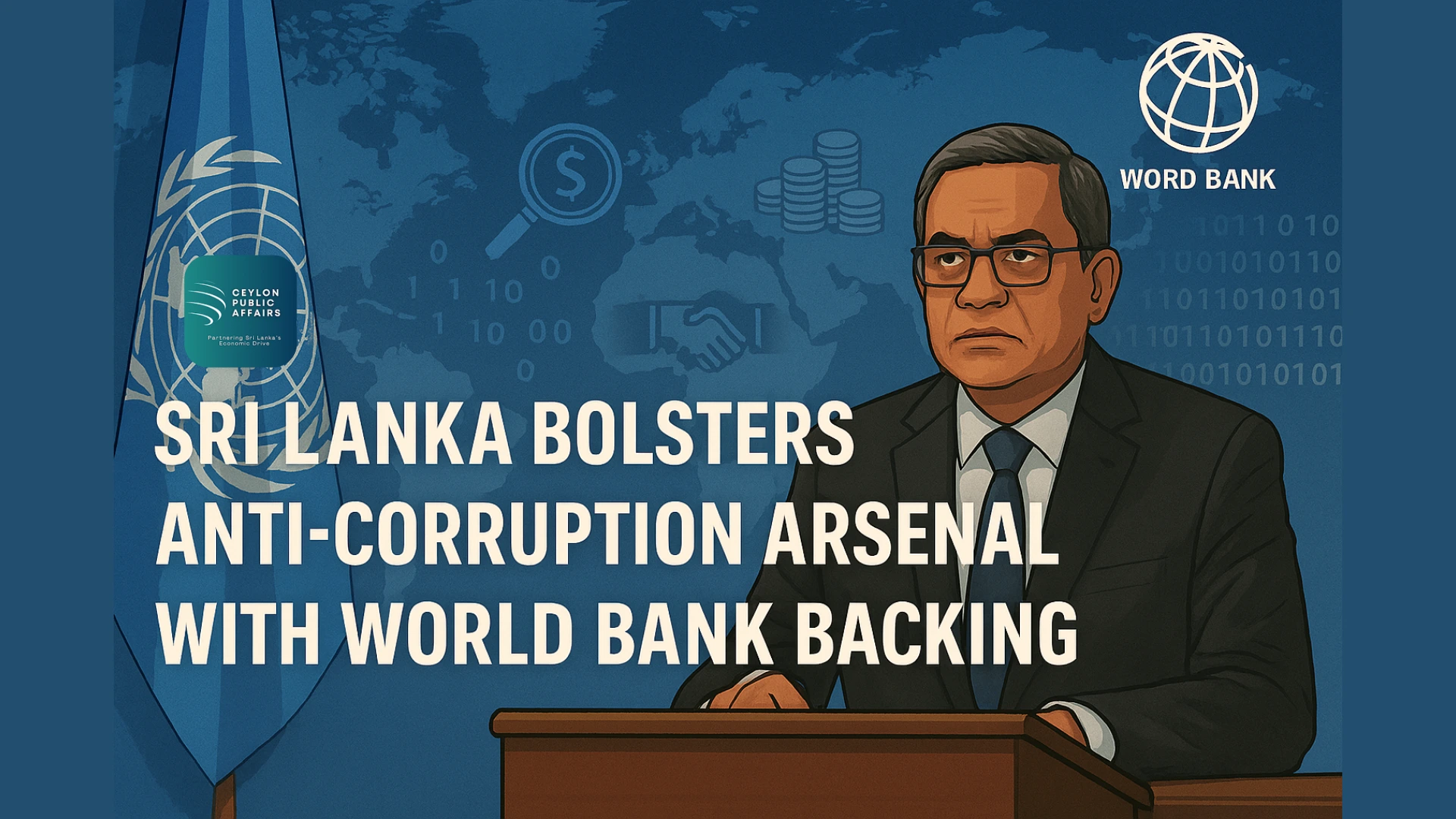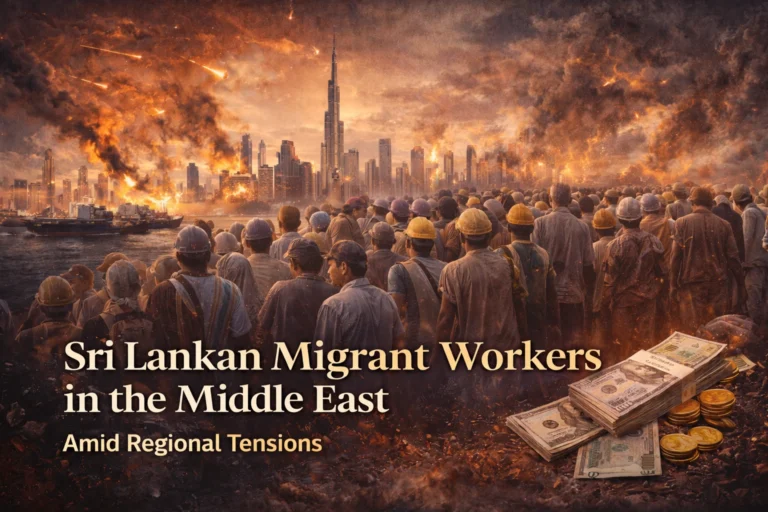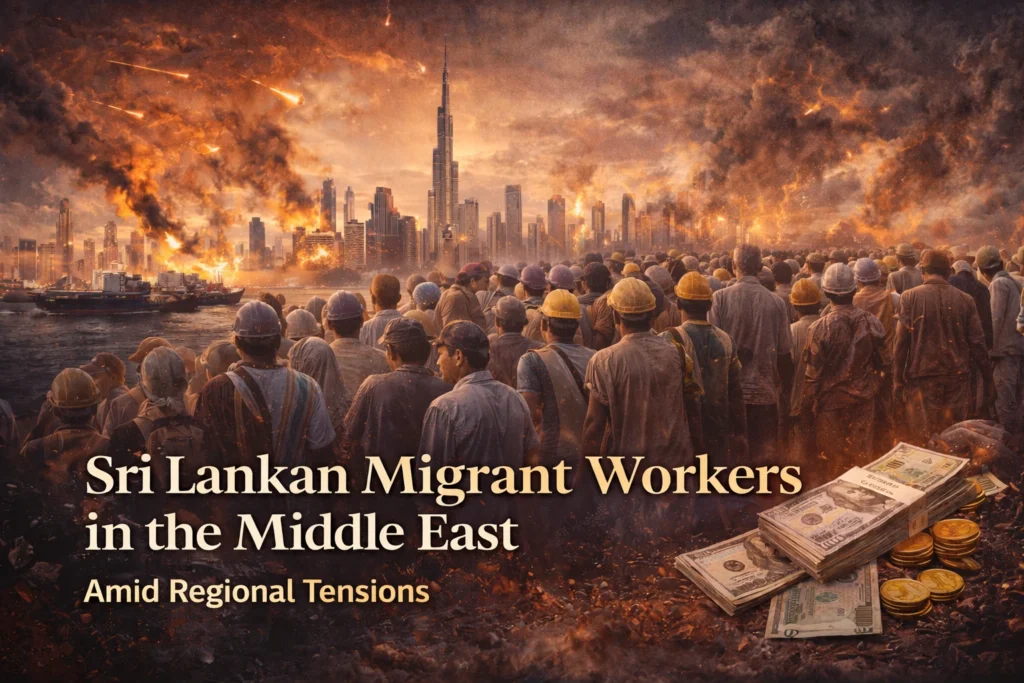World Bank is backing Sri Lanka’s Commission to Investigate Allegations of Bribery or Corruption (CIABOC). Sri Lanka has taken a decisive step forward in combating corruption. Justice Neil Iddawala, Chairman of CIABOC, held high-level talks with World Bank representatives at the UN Secretariat in Vienna. The meeting occurred during the Second Resumed Sixteenth Session of the UNCAC Implementation Review Group (1-5 September 2025).
Proceeds of Crime Act No. 5 of 2025: A Landmark Framework
At the centre of discussions was the Proceeds of Crime Act No. 5 of 2025 (POCA). The Act empowers authorities to trace, freeze, confiscate, manage and dispose of assets derived from corruption or other criminal activity, whether located within Sri Lanka or abroad.
This marks a shift from prior legislation, such as the Declaration of Assets and Liabilities Act and the Bribery Act; that lacked robust enforcement tools. POCA introduces both conviction-based and non-conviction-based forfeiture, enabling asset recovery where criminal prosecution may be insufficient or stalled.
World Bank Interest: Technical Support and Strategic Partnership
Present at the Vienna meeting were Laura Pop, Neha Maryam Zaigham and Emile van der Does de Willebois of the World Bank. They expressed firm interest in providing technical assistance and establishing long-term collaboration to support effective implementation of POCA.
StAR Initiative: Laying the Foundations
This is not Sri Lanka’s first engagement with the World Bank’s Stolen Asset Recovery (StAR) Initiative. Previous support included development of asset declaration laws, electronic tracking systems and policy frameworks governing proceeds of crime. These interventions laid the groundwork for stronger institutional responses to corruption.
Potential Areas of Cooperation
CIABOC and the World Bank identified several immediate cooperation avenues:
- Capacity building: Training for investigators and prosecutors to enhance asset investigation and prosecution techniques.
- Asset tracing tools: Advanced technologies to track complex and cross-border illicit flows.
- Digital platforms: Systems to enhance transparency in asset registers, case status and enforcement processes.
- Institutional integration: Embedding asset recovery mechanisms into legal and administrative infrastructure for enduring resilience.
These areas, if developed effectively, could overcome bottlenecks that have historically plagued Sri Lanka’s anti-corruption regime.
Why POCA Matters: Comparing Past Frameworks
Prior approaches lacked muscle. Sri Lanka’s earlier asset recovery tools were often reactive and dependent on conviction. Complex financial crime and transnational assets were hard to pursue. POCA changes that. It enables proactive asset seizure and safeguards public interest even where convictions falter.
Electronic systems were fragmented. Past asset declaration and provenance tracking relied on manual processes. That limited auditability. POCA, combined with digital platforms, promises more reliable and real-time monitoring.
Asset recovery mechanisms were siloed. Multiple agencies handled corruption, finance and prosecution. That created inefficiencies. CIABOC’s mandate under POCA streamlines ownership of investigations and enforcement.
Implementation Challenges and Risks
- Legal complexity: Non-conviction-based forfeiture needs concrete safeguards. Without strong judicial oversight, POCA risks accusations of executive overreach.
- Capacity gaps: CIABOC needs training and modern forensics tools to investigate complex asset trails. Budget and staff shortages may hamper execution.
- Digital infrastructure: Building secure, interoperable systems takes time and specialised skills.
- Sustainability: Long-term success requires institutionalising asset recovery beyond individual administrations.
The World Bank’s involvement could mitigate these risks, if accompanied by transparent oversight and phased deployment.
Global Standards and Sri Lanka’s Credibility
Sri Lanka’s presence at the UNCAC Implementation Review Group, led by Justice Neil Iddawala, marks a deliberate shift toward global anti-corruption benchmarks. His participation in Vienna, alongside World Bank and UNODC representatives, wasn’t symbolic, it was strategic. Justice Neil’s articulation of Sri Lanka’s new Proceeds of Crime Act No. 5 of 2025 (POCA) positioned the country as a serious player in asset recovery and financial transparency. The Act’s provisions; non-conviction-based forfeiture, international cooperation, and digital asset tracing mirror global best practices and signal institutional maturity. For Sri Lanka, this isn’t just legal reform; it’s reputational repair.
Countries that demonstrate enforcement consistency and judicial independence earn trust not only from donors and development partners, but from diaspora investors and regional allies. Justice Neil’s engagement with the World Bank’s StAR Initiative also builds continuity with earlier reforms, reinforcing Sri Lanka’s credibility as a jurisdiction willing to evolve. But credibility is earned in implementation. The challenge now lies in operationalising POCA: training enforcement bodies, digitising asset tracking, and ensuring judicial safeguards. Justice Neil’s leadership offers a legal compass, but the system must follow through. As Sri Lanka steps onto the global stage, its credibility will hinge not on what it legislates, but on what it enforces.
To read “Sri Lanka’s Brain Drain Crisis: The Cost of Losing Our Brightest Minds”, Click Here.













